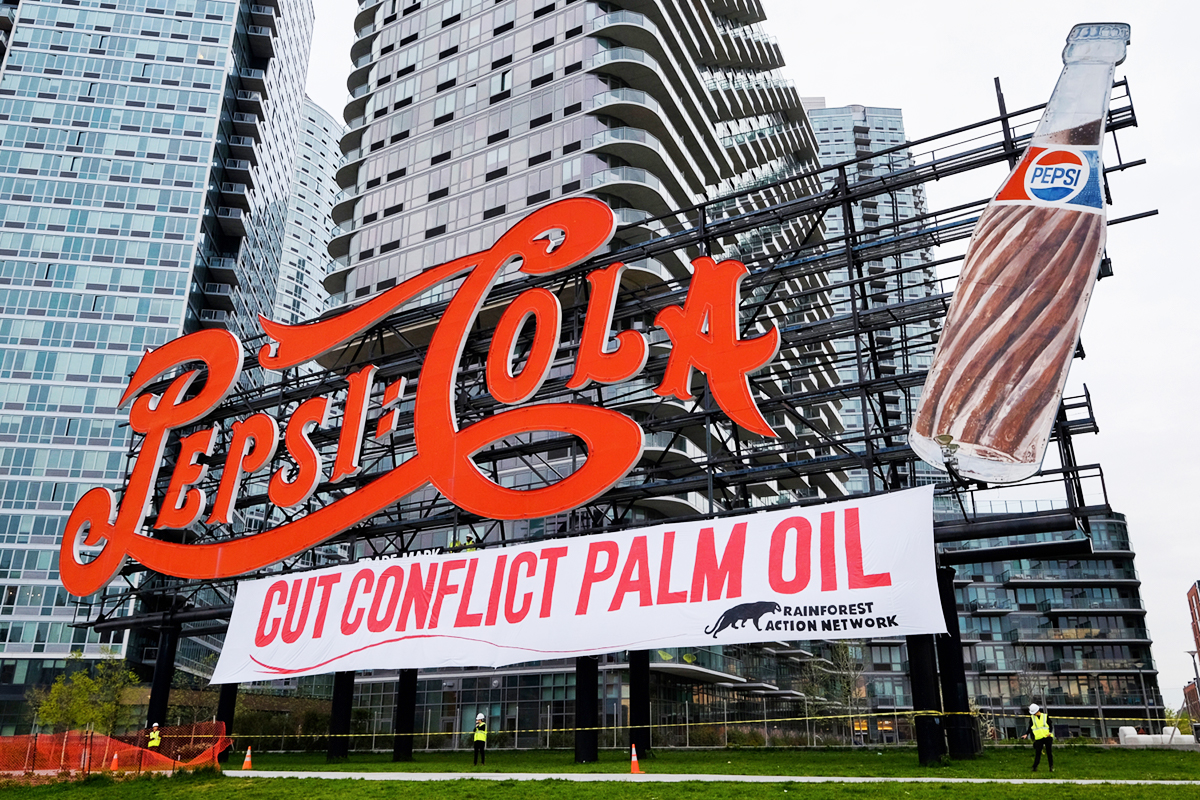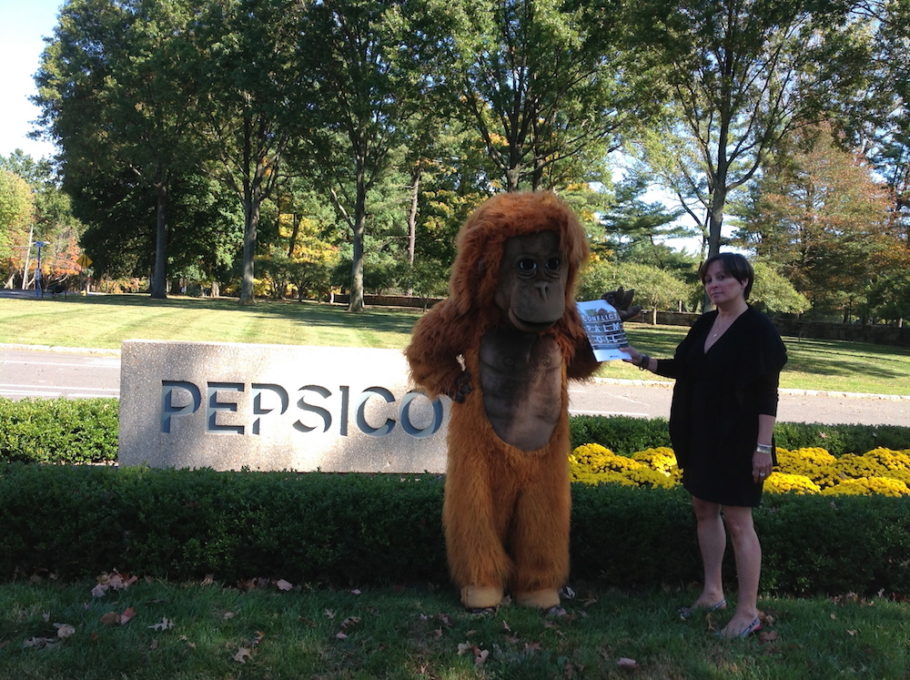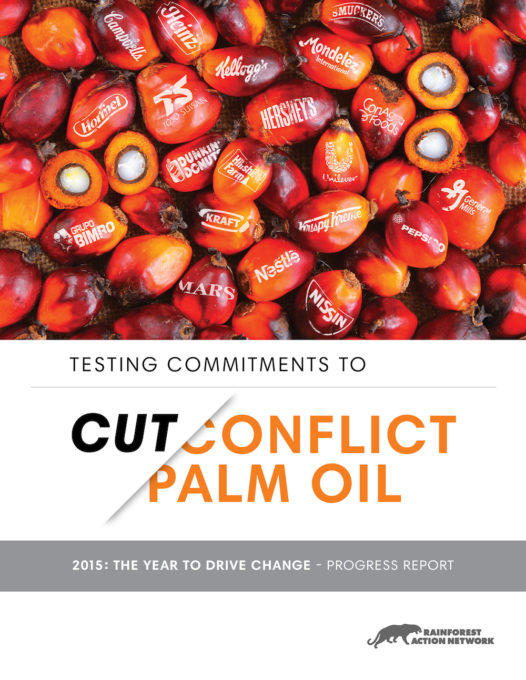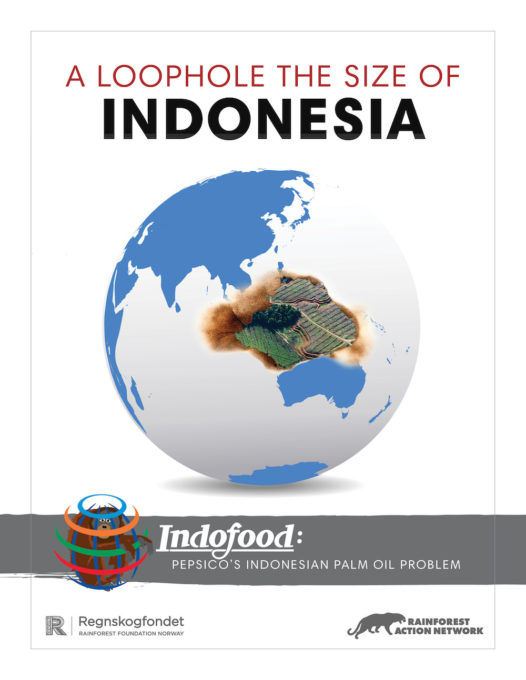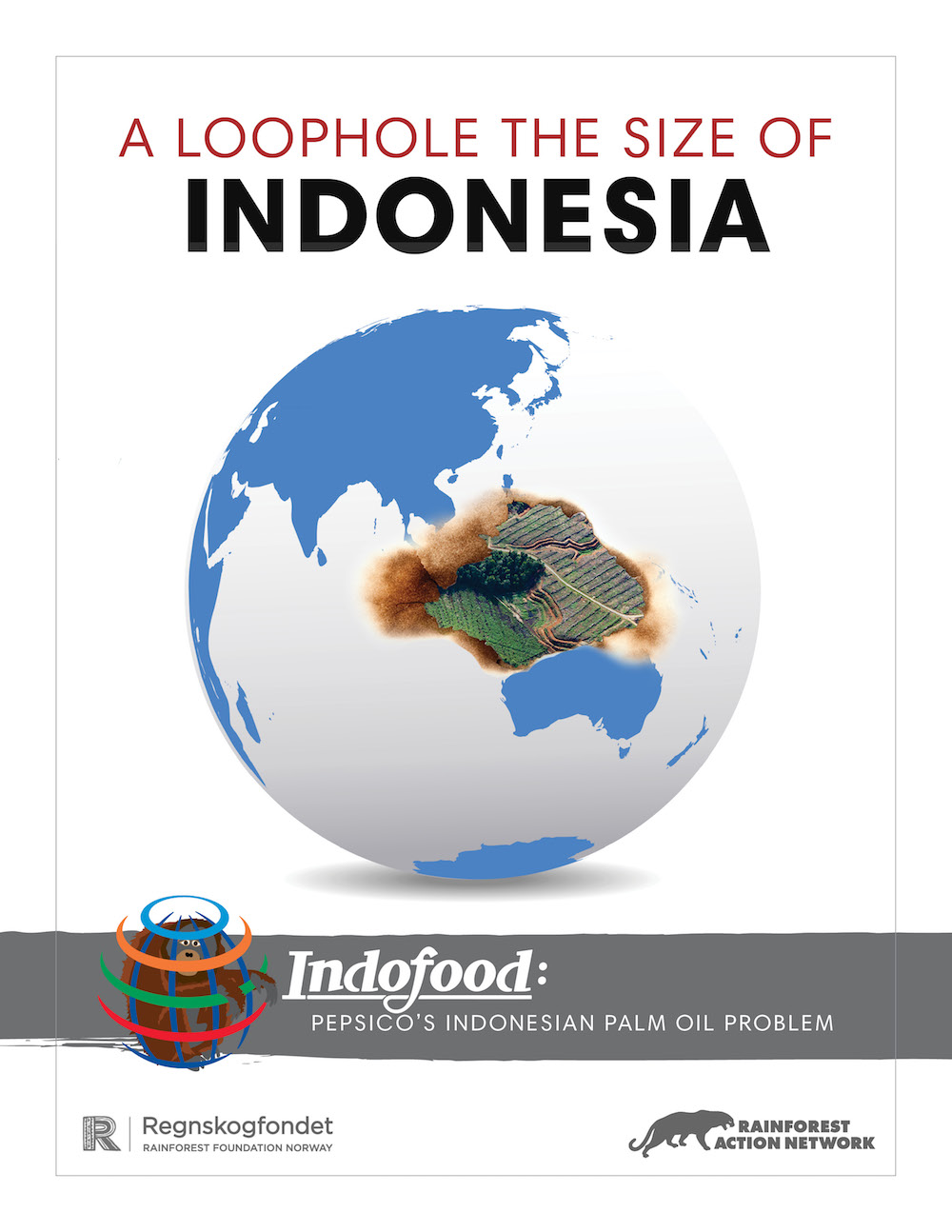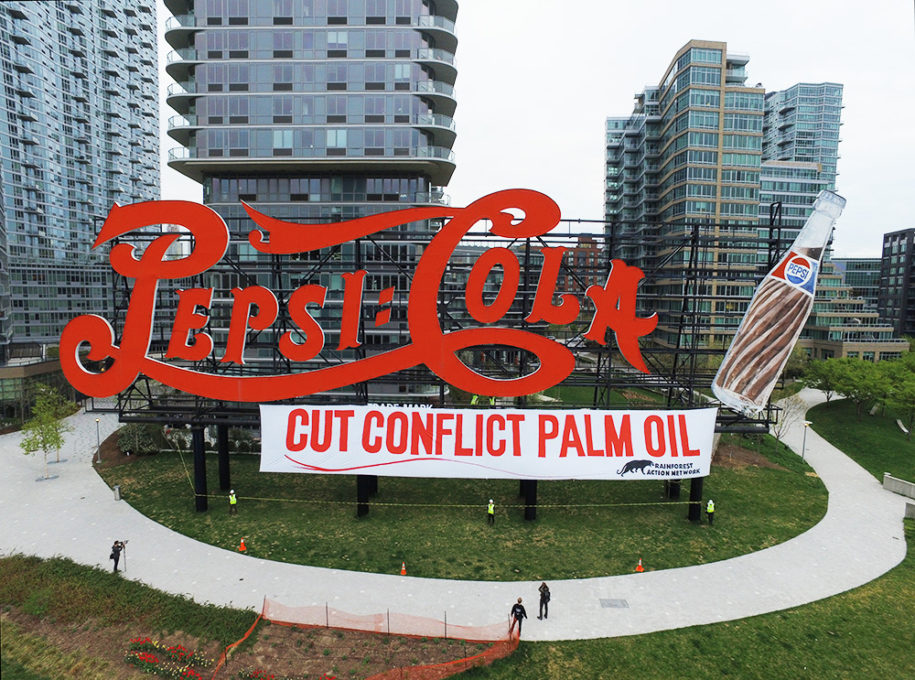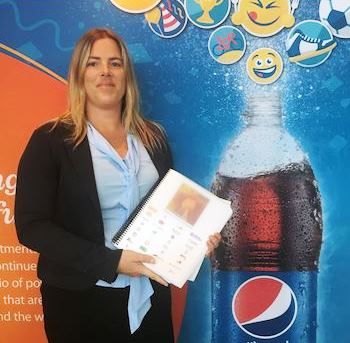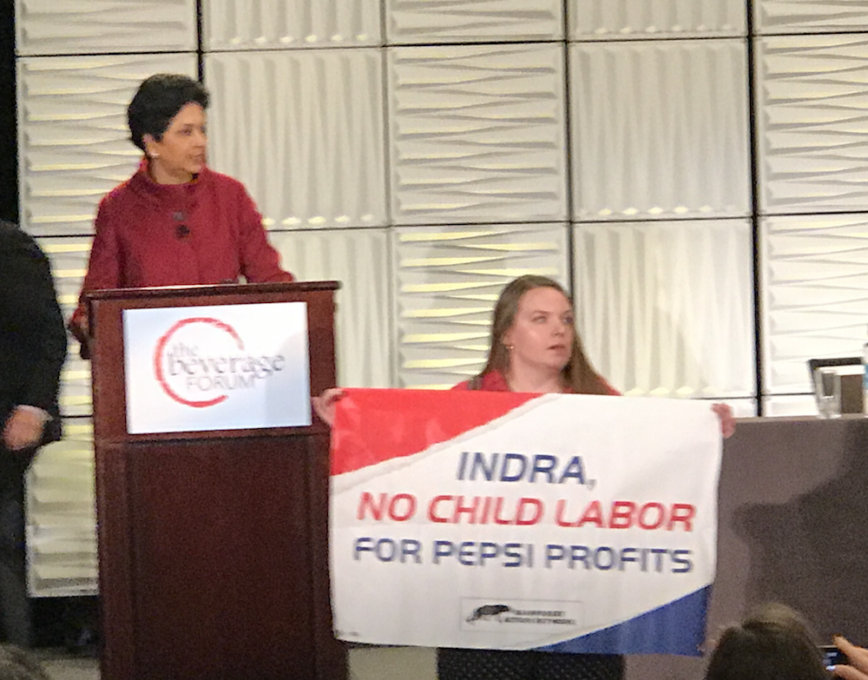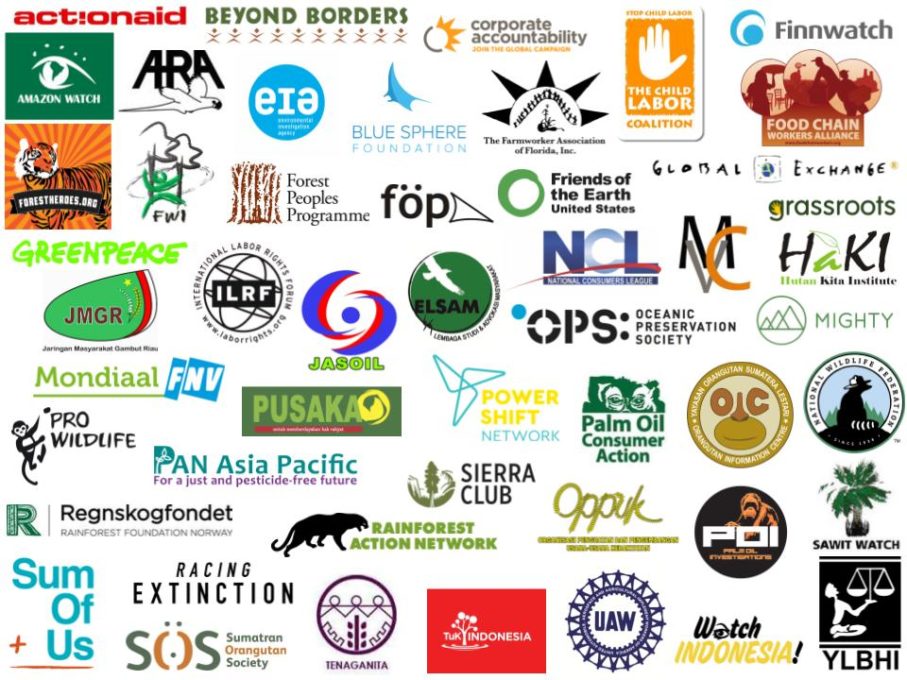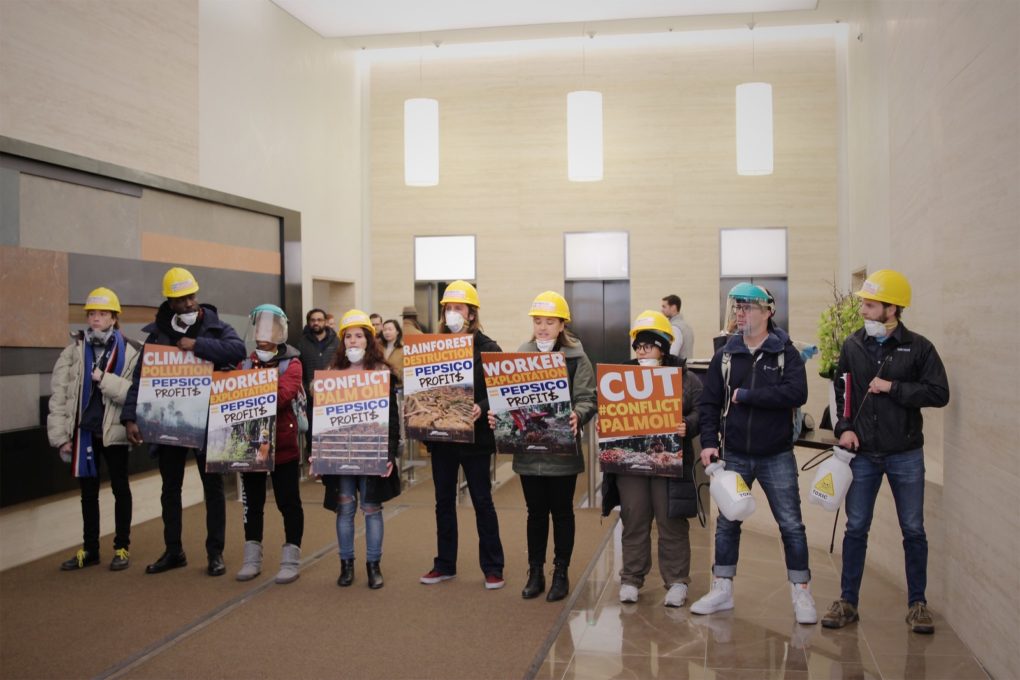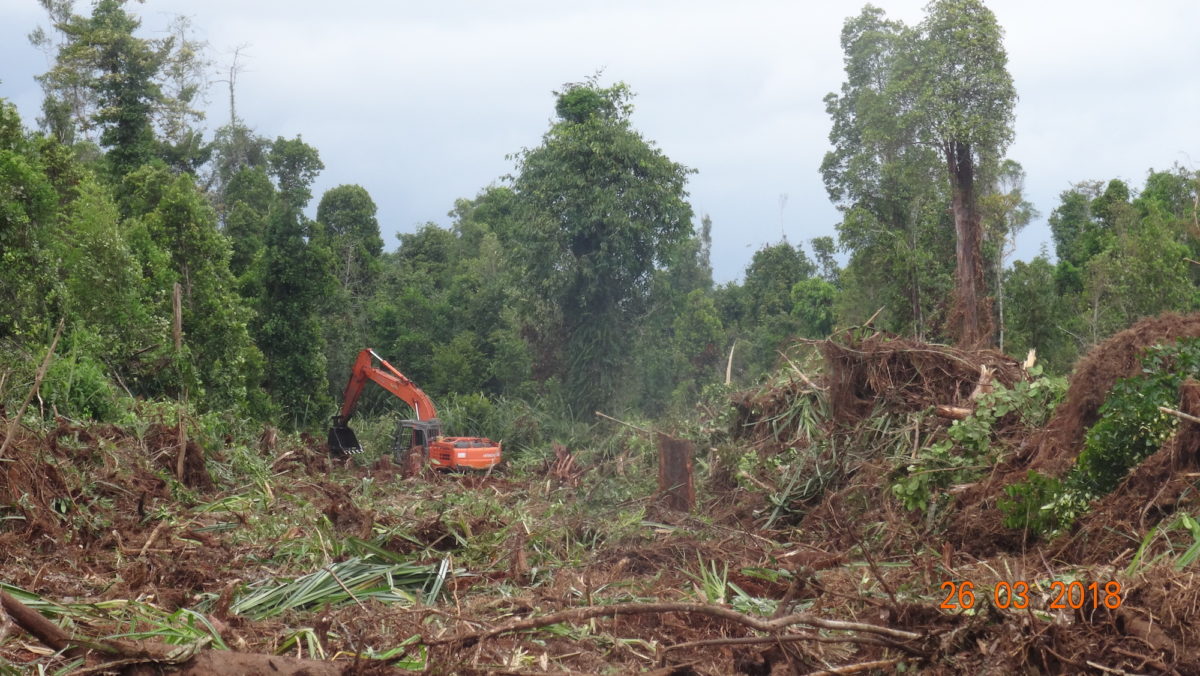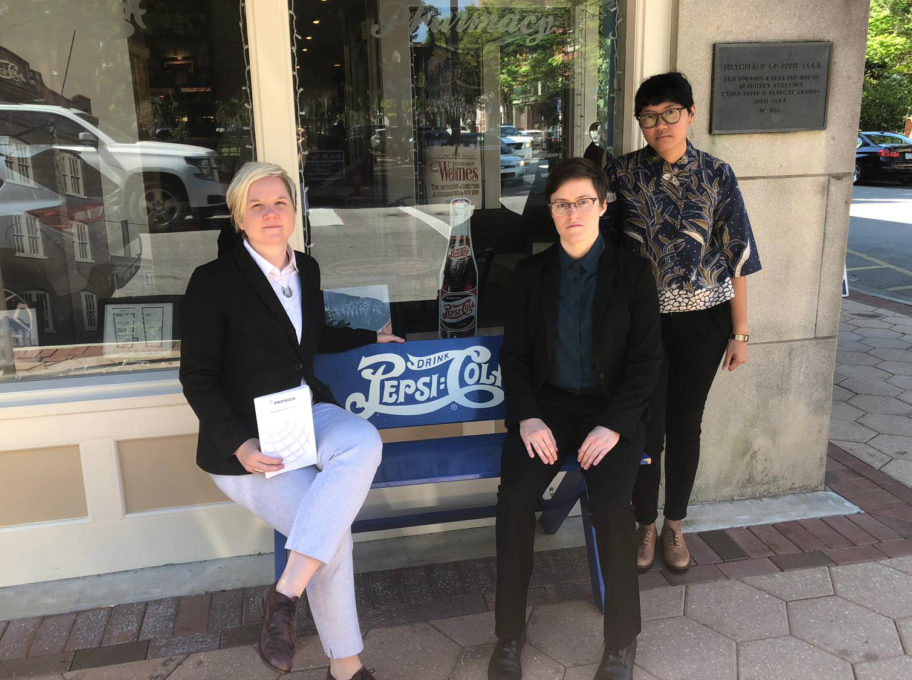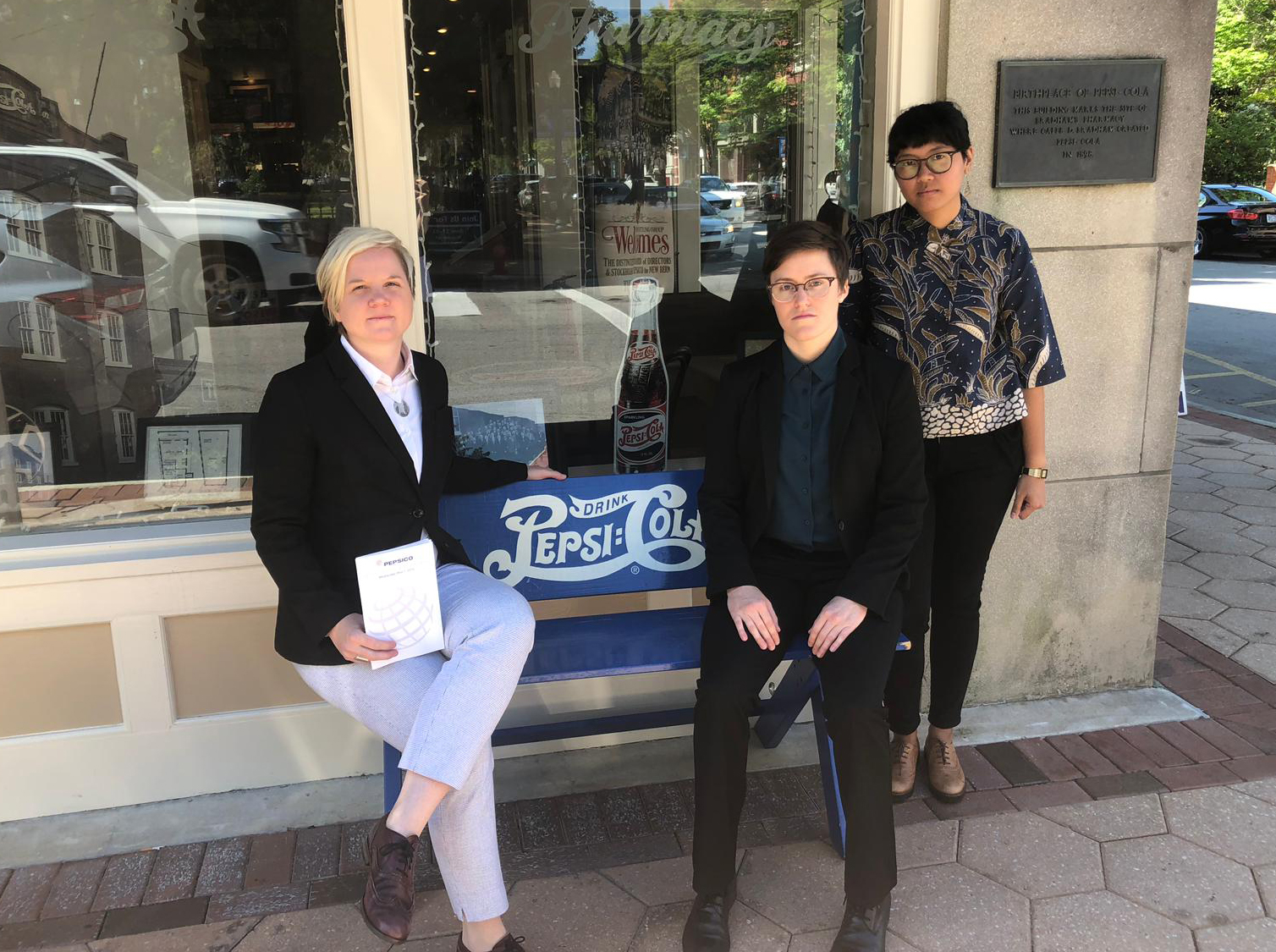After more than 6 years of campaigning on PepsiCo, we succeeded in moving this snack food giant, with PepsiCo announcing a leading policy and actions to address the destruction of rainforests, the abuse of workers, and the exploitation of communities for Conflict Palm Oil.
But how did we get there? The timeline below will take you through some of the key actions and milestones that made this epic campaign a success.

RAN launches Snack Food 20 campaign
The Snack Food 20 campaign called on snack food giants, including PepsiCo, to use their purchasing power to drive a fundamental transformation in the way palm oil is traded and produced.
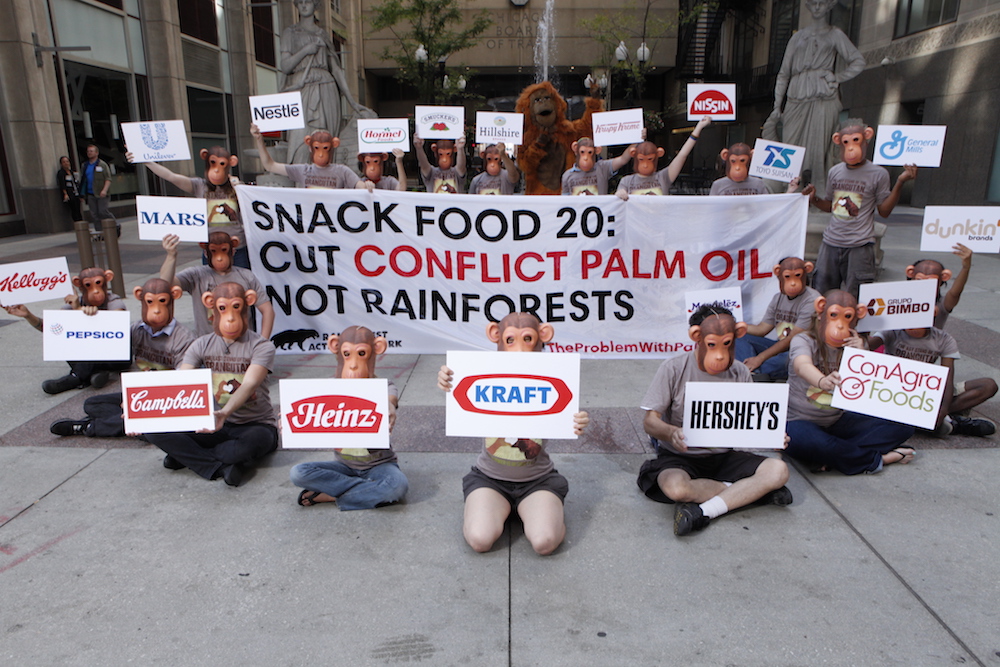
Special delivery at PepsiCo HQ!
Strawberry the orangutan delivered RAN’s Conflict Palm Oil report to a PepsiCo representative at its headquarters in Purchase, NY. The report outlined the problems with Conflict Palm Oil: rainforest destruction, species extinction, land grabbing, forced and child labor, and climate pollution, and how the supply chains of the Snack Food 20—including PepsiCo—were driving this devastation.
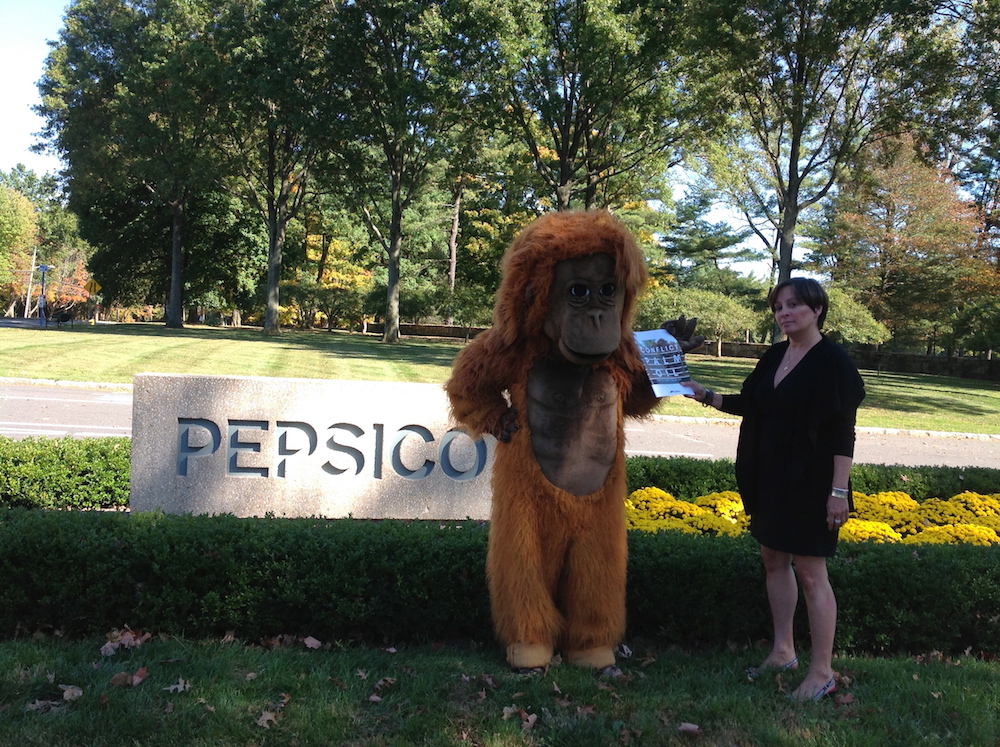
PepsiCo named as main campaign target
RAN named PepsiCo as the main focus of our Snack Food 20 campaign given the company’s position as one of the largest snack food companies in the world.
“PepsiCo has fallen behind its peers by failing to raise its standards to the new global benchmark that’s been set for responsible palm oil use.” – Ginger Cassady, RAN forest program director, April 21, 2014.
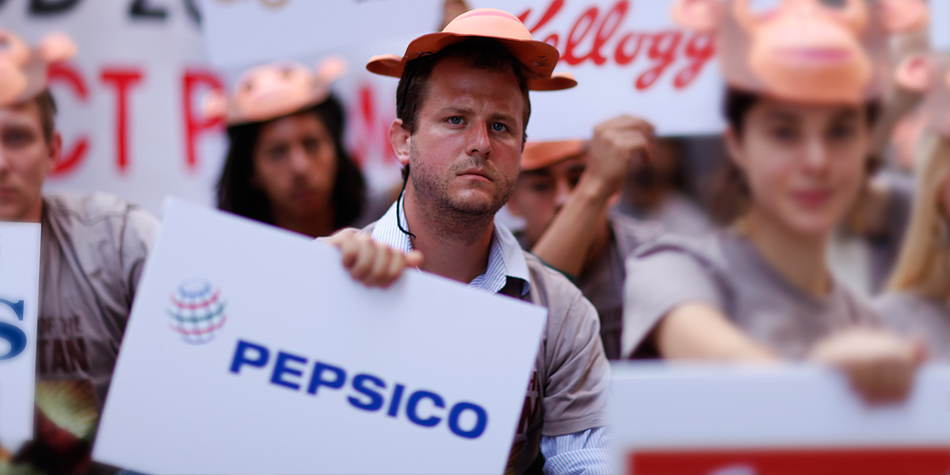
PepsiCo’s first palm oil policy falls short
PepsiCo made its first public palm oil pledge but the commitment had critical gaps that fell short of the global benchmark for responsible palm oil procurement.
Global Day of Action
In May 2014, hundreds of events across the world called on PepsiCo to break ties to Conflict Palm Oil. In the same month, Indonesian ally Ratri Kusumohartono, from Sawit Watch (Palm Oil Watch), attended PepsiCo’s Annual Shareholder Meeting where she spoke directly to PepsiCo’s CEO about the impacts of Conflict Palm Oil on Indonesia’s rainforests, local communities, and workers.
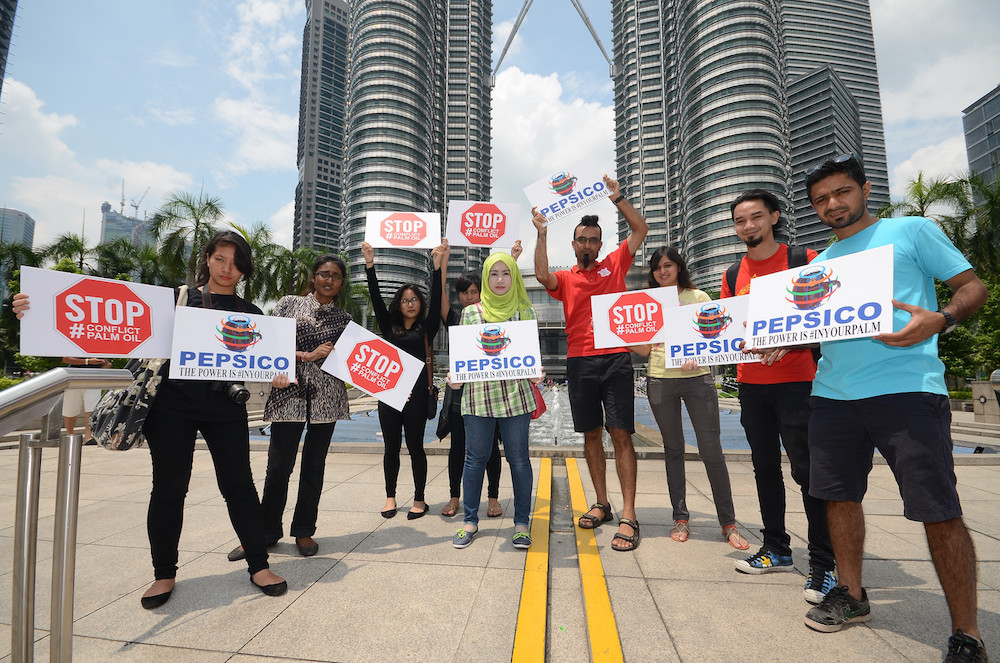
Under Pressure: Pepsi True disruption
Online pressure on PepsiCo ramped up when activists from RAN and SumOfUs flooded PepsiCo’s Amazon.com page for its new stevia drink, Pepsi True, with hundreds of 1-star negative reviews calling on PepsiCo to address its Conflict Palm Oil problem.
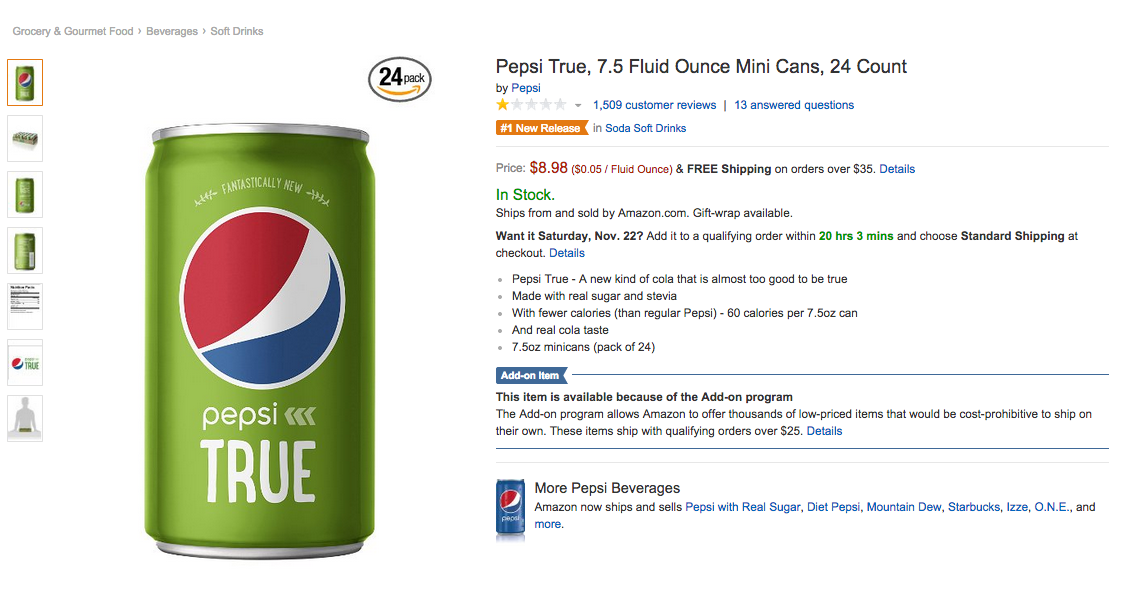
Grocery store shelf rebranding actions
Hundreds of activists took part in a Week of Action in grocery stores and public spaces across the United States, engaging shoppers and rebranding grocery store shelves to warn customers that products from PepsiCo’s sub-brand Quaker may contain Conflict Palm Oil.
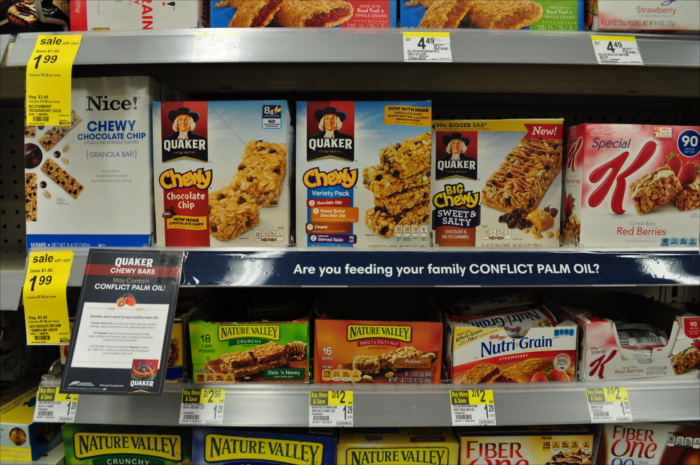
RAN publishes Conflict Palm Oil Progress Report
RAN launched its Conflict Palm Oil progress report and Snack Food 20 scorecard, exposing how major snack food brands, including PepsiCo, continued to lag behind on palm oil commitments.

PepsiCo’s second palm oil policy published
Following two years of escalating public outcry over its use of Conflict Palm Oil, PepsiCo released a new palm oil policy. Environmental and human rights organizations immediately labeled it as both inadequate and incomplete, in large part because it specifically excluded joint venture partner Indofood from adhering to PepsiCo’s heightened social and environmental standards for palm oil.
PepsiCo’s Indonesian business partner exposed
Banner drop on iconic Pepsi landmark
Protesters scaled the iconic six story NYC Pepsi landmark to drop a 100-foot banner demanding the snack food giant cut Conflict Palm Oil.
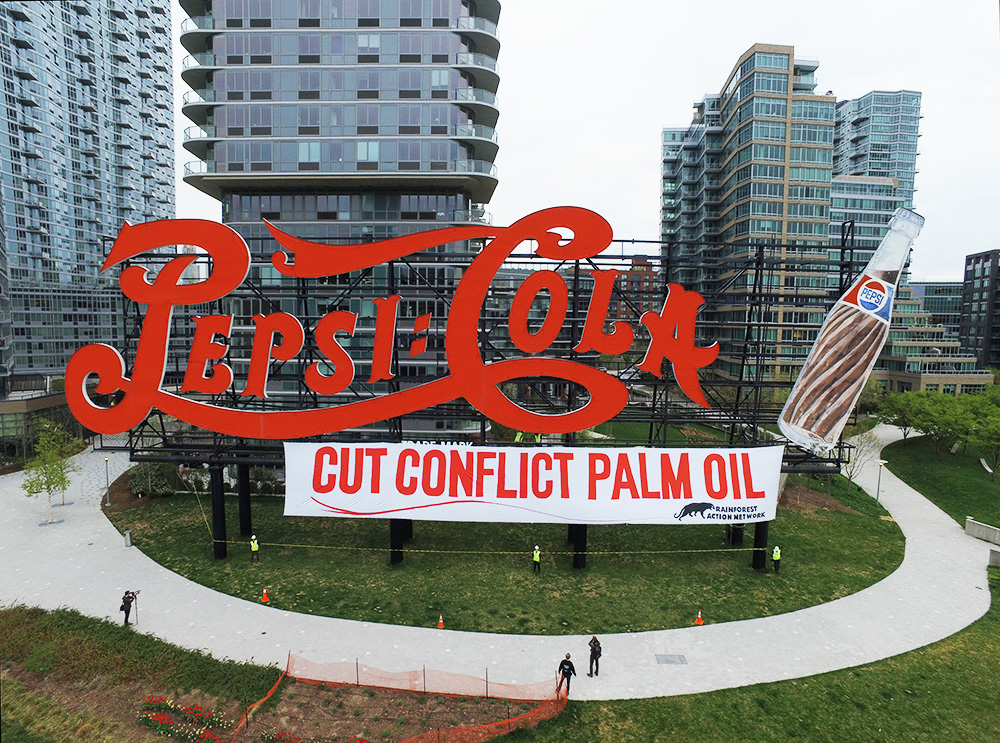
Indofood exposed for worker exploitation
RAN, OPPUK—an Indonesian labor rights advocacy organization—and the International Labor Rights Forum, called out PepsiCo’s hidden link to worker exploitation in Indonesia in a video and joint report. PepsiCo’s joint venture partner Indofood was exposed again, revealing findings of child labor, poverty wages and worker exploitation on its own plantations.
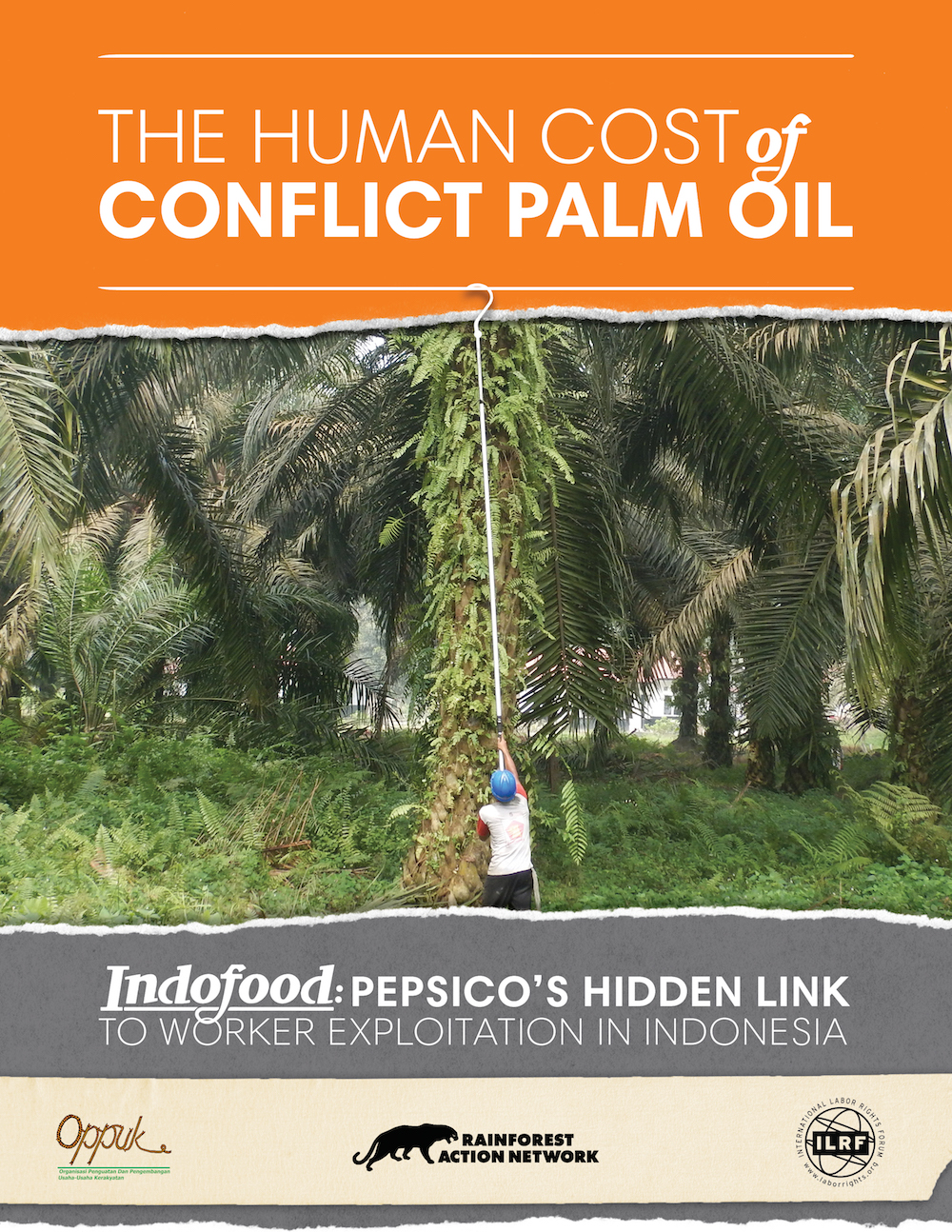
Billboard placed in CEO’s hometown
We brought our campaign to PepsiCo’s doorstep by running a billboard for several weeks in the former PepsiCo CEO’s hometown, calling out the company for its part in driving orangutan extinction.
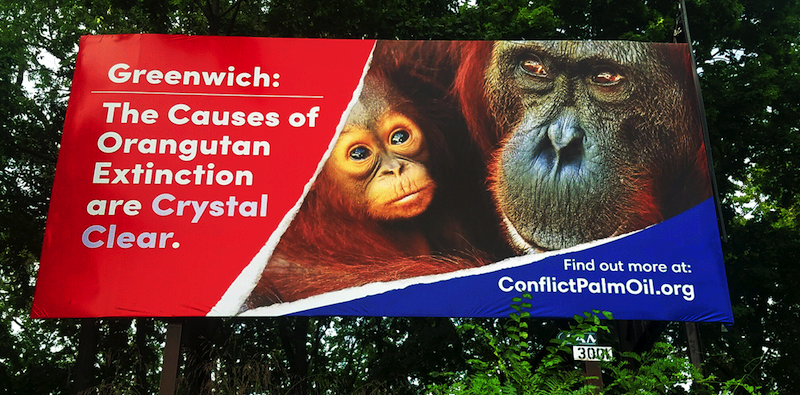
250,000 petition signatures delivered
An international coalition of civil society groups including RAN, SumOfUs, Wildlife Asia, and the Oceanic Preservation Society, together with local supporters, delivered a petition of a quarter million signatures to PepsiCo at its headquarters in Purchase, NY.
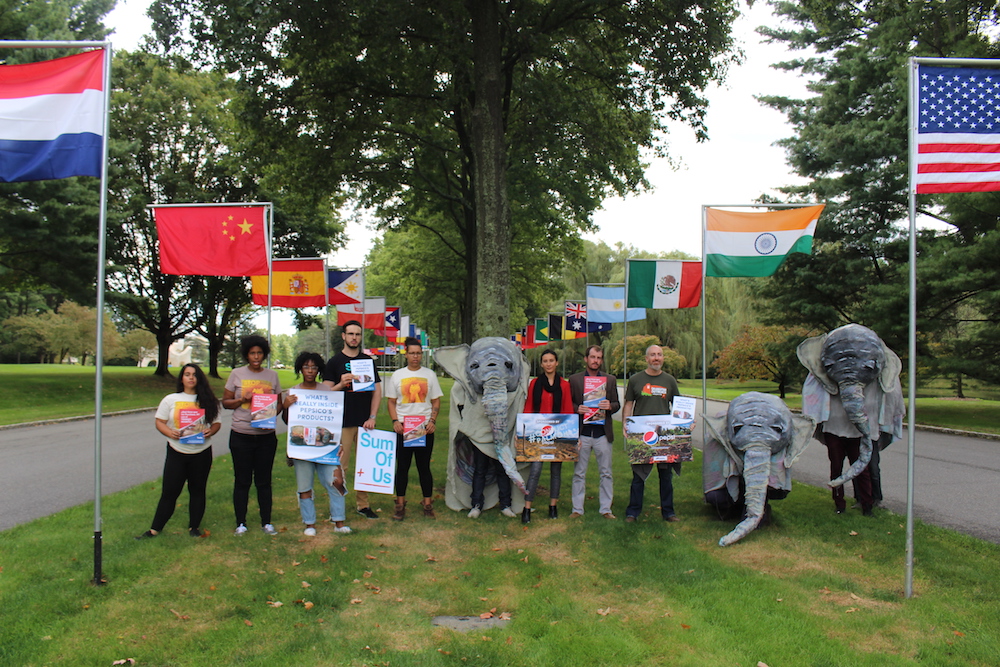
Calling out PepsiCo’s CEO
Activists crashed then-CEO Indra Nooyi’s speech at the Tate Lecture Series at the Southern Methodist University in Dallas, Texas. As Ms. Nooyi was speaking, activists dropped a banner in the auditorium reading: “Indra, No Child Labor For Pepsi Profits. Cut #ConflictPalmOil”.
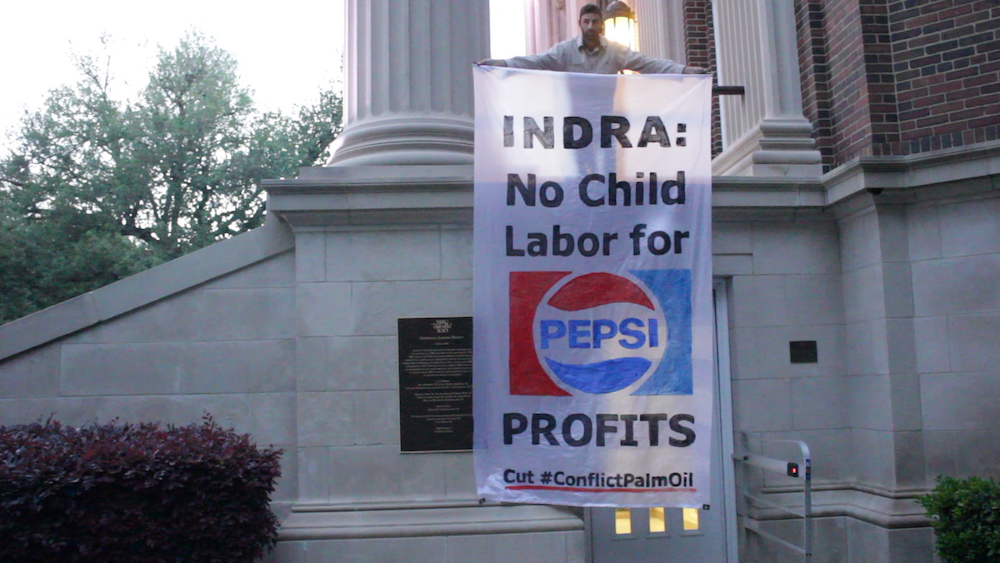
Calling out PepsiCo’s CEO…Again!
Labor and human rights activists deployed a banner in front of then-CEO Indra Nooyi while she accepted the Beverage Forum’s lifetime achievement award. Other activists used an audio disruption of chainsaws and an audio demand for justice for plantation workers.
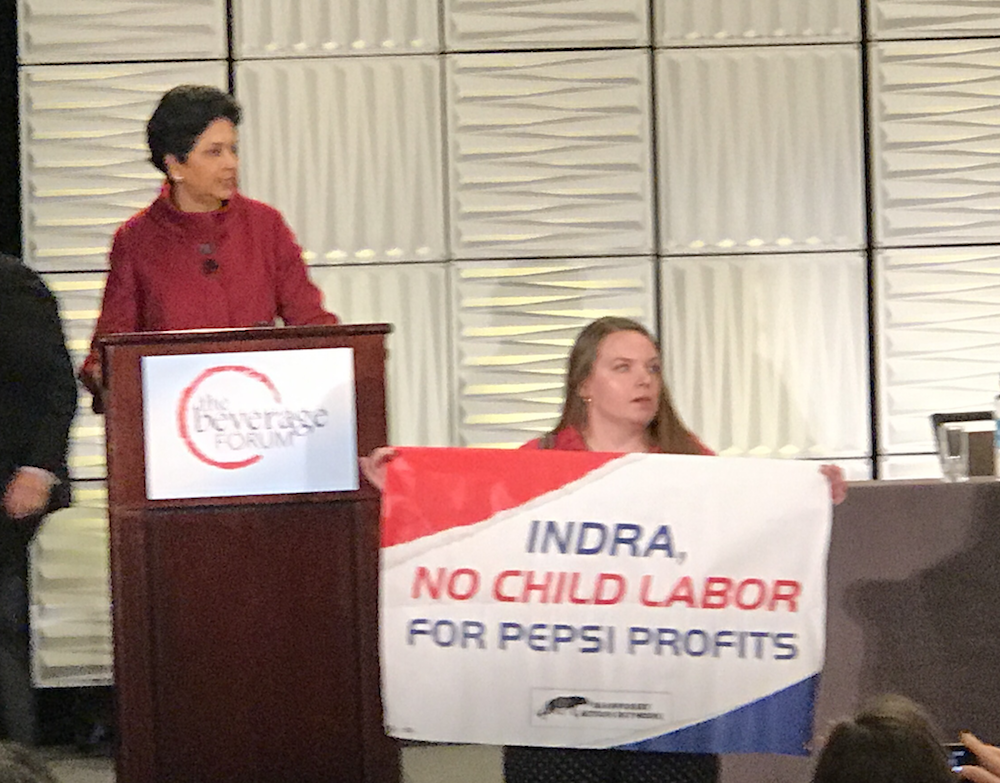
Palm oil from critical elephant habitat exposed
A RAN field investigation showed PepsiCo was complicit in driving the destruction of critical elephant habitat in Indonesia’s Leuser Ecosystem, one of the most important areas of rainforest still standing in Southeast Asia. RAN exposed a rogue palm oil producer for illegally clearing forest and identified that the palm oil from this plantation was sold to major suppliers of global brands like PepsiCo.
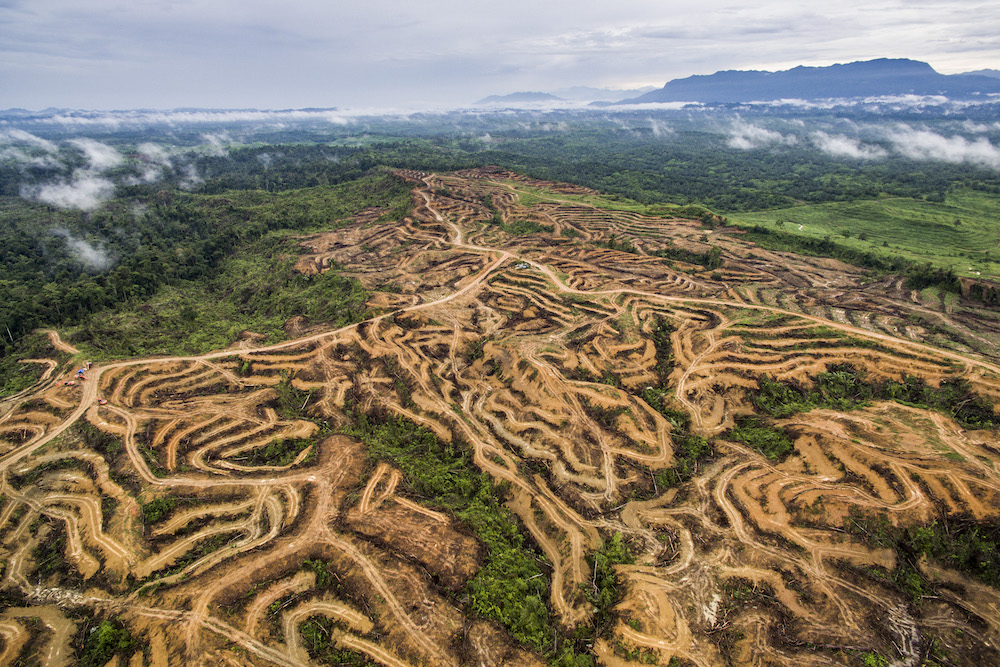
Protest at Brown University
Students of Brown University protested an honorary degree that was awarded to PepsiCo’s then-CEO Indra Nooyi for her company’s continued use of Conflict Palm Oil.
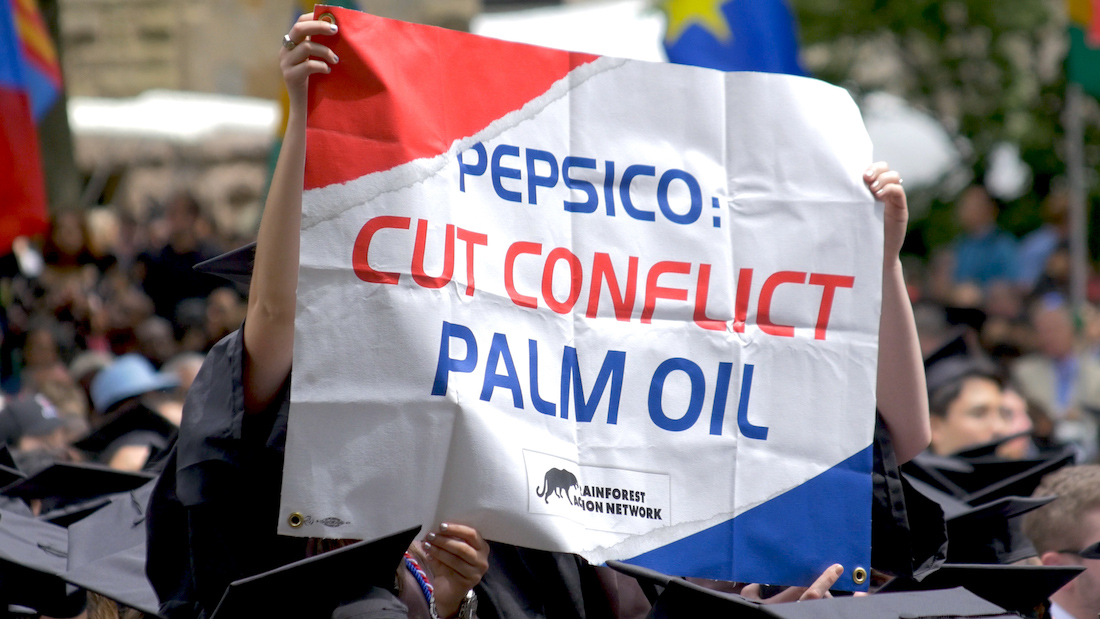
Open Letter to PepsiCo
50 organizations from around the world signed a letter urging PepsiCo’s CEO to take action to address the impacts of the company’s palm oil supply chain and its business partnership with Indofood.
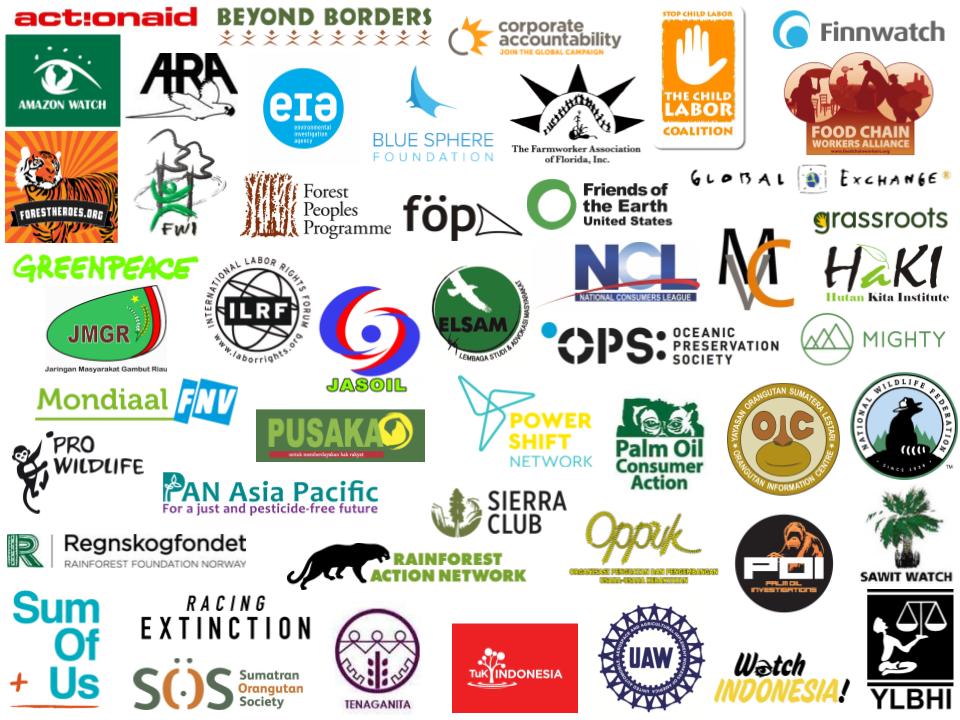
Indofood exposed, again
RAN, OPPUK and ILRF published a second report exposing how systemic labor violations persist on PepsiCo’s Indonesian business partner Indofood’s plantations.
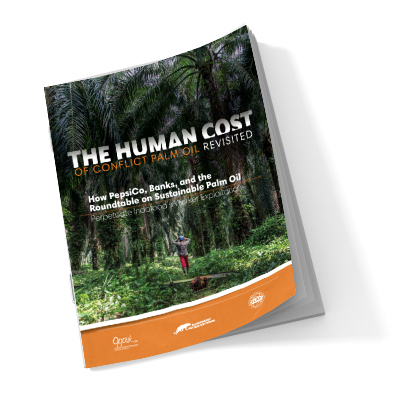
Office disruptions
Activists stormed PepsiCo’s offices in NYC and DC to demand the snack food giant stop deforestation and exploitation.
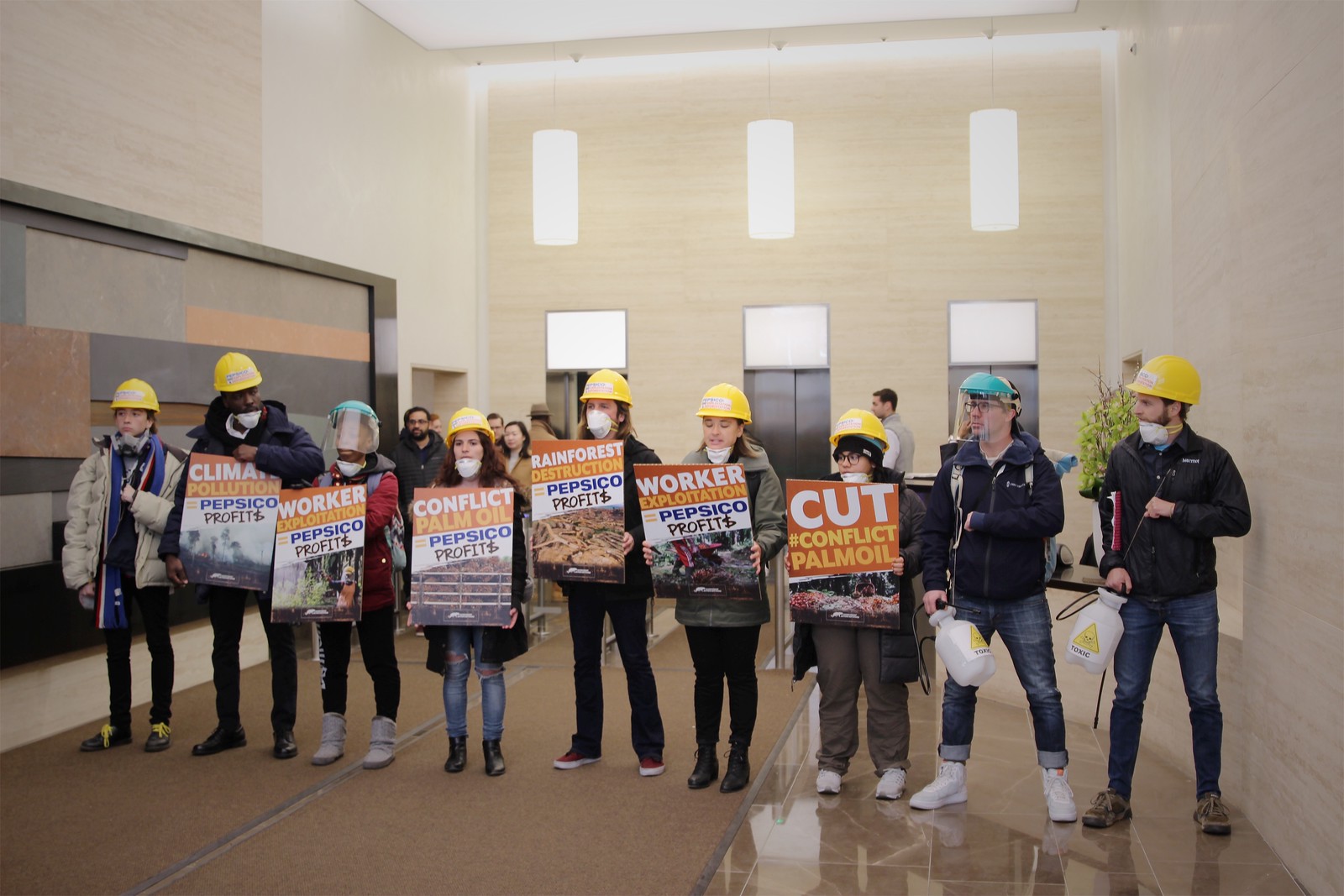
PepsiCo linked to destruction in the Leuser Ecosystem
Satellite monitoring and field investigations by RAN confirmed ongoing deforestation by a bad actor inside the endangered Leuser Ecosystem. PepsiCo was found directly linked to this destruction and exposed for failing to ensure deforestation does not enter its supply chain.
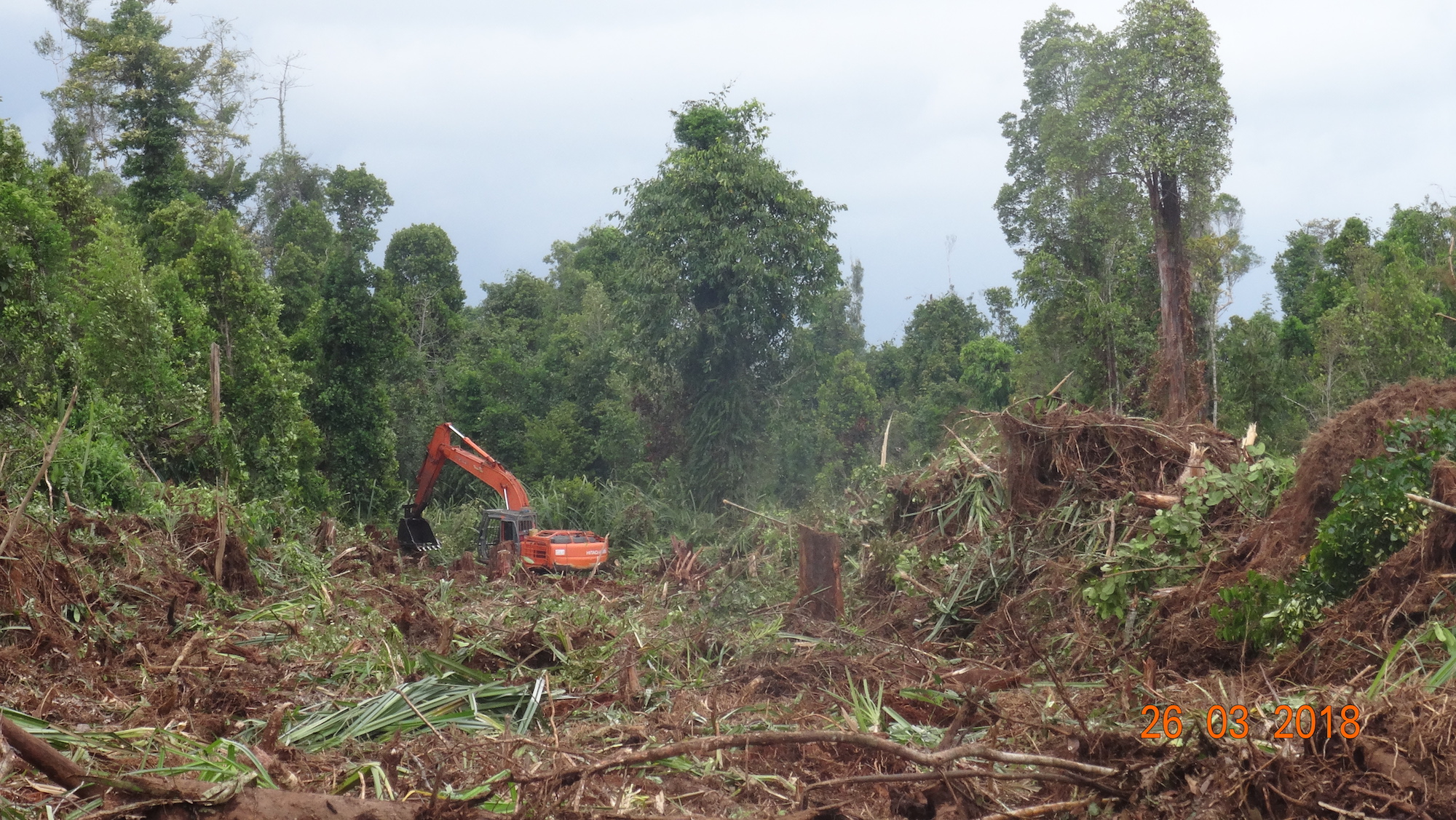
Brands exposed for buying illegal palm oil
Undercover RAN investigations found that palm oil being grown illegally inside a protected Indonesian wildlife reserve had been sold to major brands including PepsiCo.
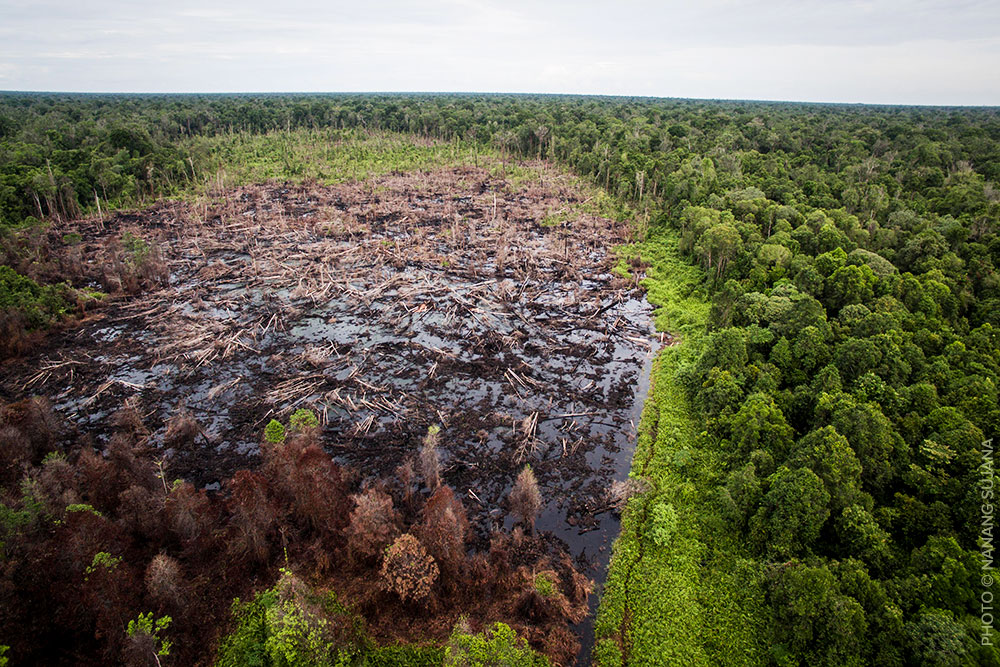
PepsiCo announces a leading policy and actions
After months of negotiations with RAN, OPPUK and ILRF, PepsiCo announced a leading policy and committed to actions to address the impact of Conflict Palm Oil on forests and human rights.

